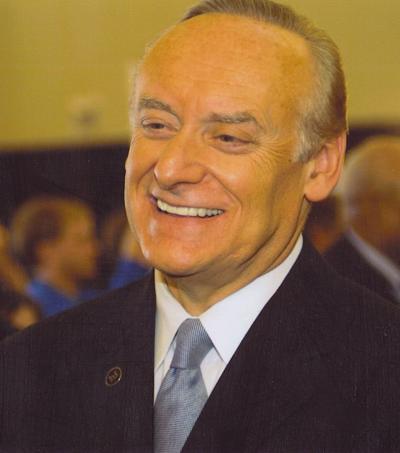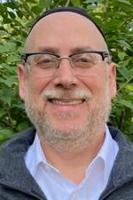As a freshman at Oberlin College, the events of May 4, 1970 at Kent State University rocked Lee Fisher’s world. He was playing Frisbee at the time.
“Moments later we learned that four students at Kent State University, not that far away, had been killed by the Ohio National Guard,” he recalled. Fisher and a friend, Ken Kay, organized the Oberlin Political Caucus, which galvanized students from across the country to work to elect people to U.S. Congress who opposed American involvement in the Vietnam War.
“We wanted to channel the anger and the grief and the frustration into something that we felt could be meaningful and constructive,” he said. “I made a decision then that I was going to spend a good part of my life in the public arena and make a difference in other people’s lives, including people that I would never meet and never know their names.”
Fisher became lieutenant governor and attorney general of Ohio, and has served in the Ohio House and Senate. He is now dean of Cleveland-Marshall College of Law at Cleveland State University.
CJN: How did you come to co-author Ohio’s hate crime law?
Fisher: In 1985, there were a series of cross burnings on the front lawns of some African American families in the Collinwood area of Cleveland. I was a state senator and represented part of Collinwood. I wrote a press release decrying racism and hate, sent it off to the media, did a few interviews and then went about my business. A few days later, I felt empty. So I called the state senator who represented another portion of Collinwood and Mike White (who later became Cleveland’s mayor), and I wrote Ohio’s hate crime law. And we were one of the first states in the country to enact a hate crime law.
CJN: What was the most meaningful point in your career?
Fisher: About two years after I had been elected state attorney general, the Ohio ACLU challenged the constitutionality of Ohio’s hate crime law. Their argument was that the law punished hate speech and was a violation of the First Amendment. We lost the case before the Ohio Supreme Court and I was devastated, but decided to immediately appeal to the U.S. Supreme Court. In the end, the Ohio hate crime law was ruled constitutional and was upheld. That was probably the most meaningful point in my career because everything converged: the intersection of law and public policy, the intersection of my position as a legislator and my position as the state’s lawyer. And it made me feel that you could do something that could have not only a deep and meaningful effect, but also one that actually could change the national landscape because as a result, hate crime laws all across the country were ruled constitutional.
CJN: How does Judaism mesh with your professional life?
Fisher: I was raised by my parents that you live your life to make a meaningful change in the world. I was president of my confirmation class at Suburban Temple and remember Rabbi (Myron) Silverman talking about the Hebrew phrase “tikkun olam.” He said tikkun olam meant repairing that small patch of world where you live and work.
CJN: What advice would you give to a young lawyer?
Fisher: Live your life at the intersection of the public, private and nonprofit worlds. And what I mean by that is, don’t just do one thing with your life.









